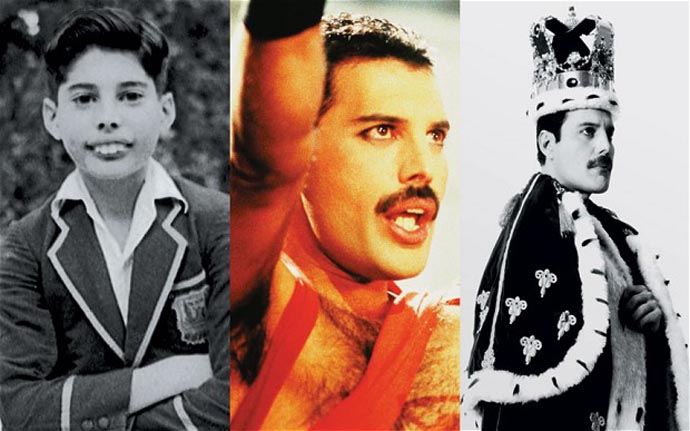
5 / 6 *
Eagle Rock, £13.99
AVAILABLE FROM AMAZON DVD | BLU-RAY
A sort of belated but extensive postscript to last year’s tremendous “Days of Our Lives” documentary, this new doc (from the same stable) turns out to be barely less enthralling. There can hardly be a person alive who doesn’t know the main thrust of the fabulous, excessive, tragic Freddie Mercury story. But this 90-minute chronicle, concentrating supremely on him as opposed to Queen, and especially on his solo ventures in the Eighties, sees its director Rhys Thomas unearth more than enough new footage of the great man to make it a rewarding and moving experience.
Many of these new discoveries are sublime. Besides plenty of long-unseen interviews with Mercury, there is his 1979 appearance with the Royal Ballet, an eaerly demo with Rod Stewart, and a further, abortive duo with none other than Michael Jackson. A former colleague recalls that Mercury bailed out of the latter – thereby inadvertantly removing himself from the all-conquering Thriller album – because he couldn’t face being expected to share a recording-studio with a real-life llama. But, with a fondly mocking wit, the film later reveals that, towards the end of his life, Mercury himself would often ring home so that he could talk to his own cats.
The soprano Montserrat Caballé – with whom Mercury collaborated on that bombastic guilty pleasure, Barcelona, 25 years ago – speaks touchingly about her onetime singing partner. The sight of band mates Brian May and Roger Taylor gallantly appearing on breakfast telly shortly after Mercury’s death from Aids in 1991, purely in order to set the record straight after some grubby tabloid sensationalising about their late friend, cannot fail to stir (although Paul Daniels’s magnificent misjudgement of the national mood on the same programme is a comical counterbalance). And in fact what repeatedly emerges in this film is the gaugantuan affection that pretty much everyone who ever met him felt for him, and the clearly still painful, un-fillable hole that his death left in their lives.
Normally, a documentary in which nobody has a single bad word to say about its subject would cloy. With Mercury, you somehow just wouldn’t have it any other way. Above all, it is his wit, his warmth and his black-and-white combination of exhibitionism and privacy, cockiness and vulnerability, candour and unknowability that this programme leaves with you with – that, and one of the most idiosyncratic and extravagant talents rock music has ever seen.
TELEGRAPH | 24 September 2012 by Mark Monahan